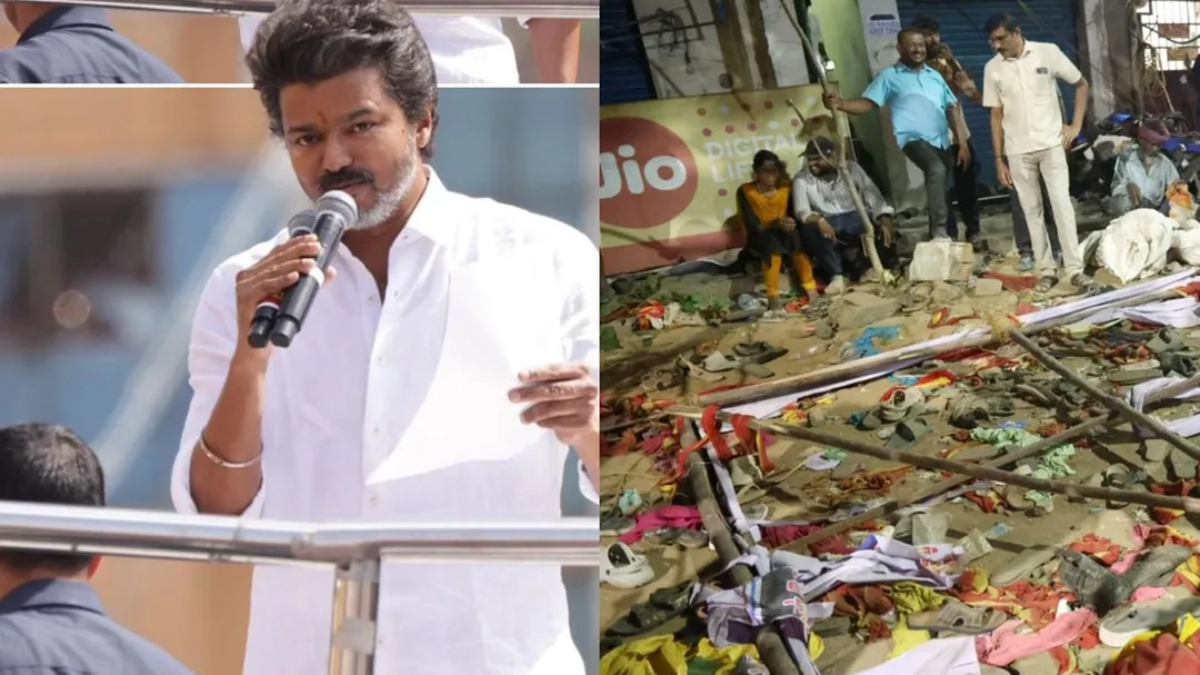Now Reading: A Father’s Grief: Karur Stampede Claims Toddler’s Life
-
01
A Father’s Grief: Karur Stampede Claims Toddler’s Life
A Father’s Grief: Karur Stampede Claims Toddler’s Life

The tragedy of the Karur stampede, which claimed the lives of over 40 people—including at least nine children—at a political rally, has ripped through the town, leaving behind a profound trail of grief. Among the countless stories of loss, one in particular captures the devastating human cost: the inconsolable mourning of a daily-wage worker for his infant son.
Vimal, a 25-year-old daily-wage labourer, and his wife, Matheswari, who is speech- and hearing-impaired, are grappling with the shattering loss of their only child, Thuruvishnu, a boy just shy of two years old. The couple, who live in a modest home barely a hundred meters from the rally venue in Vadivel Nagar, Velusamypuram, had their world irrevocably changed in the span of a chaotic evening.
On the day of the rally, Thuruvishnu was taken to the massive gathering by his aunt and uncle, Lalli and Pasupathi. As the crowd swelled to an uncontrollable size and the political leader began his address, witnesses recount a sudden, terrifying shift. A combination of a power cut, a malfunctioning microphone, and the sheer density of the crowd caused an outbreak of panic.
“I was holding Vishnu in one hand and my daughter in the other when we were shoved back violently,” recounted Lalli, her voice heavy with grief. “I fell, and the baby slipped from my arms.”
In the ensuing chaos, which saw people pushed into a low-lying sewerage and others crushed under the frantic surge, the toddler was lost. For over two harrowing hours, Lalli searched desperately amidst the stampede, suffering injuries herself that required a night’s admission to the hospital.
It was only the next morning, through agonizing television footage showing the victims at the government hospital, that Vimal realised the worst. He rushed to the mortuary to find his son, Thuruvishnu, among the dead—the youngest victim of the tragedy that had shaken the state. The family performed the baby’s last rites in stunned silence, the small home now steeped in a silence far heavier than before.
The grief is overwhelming, especially for Matheswari, whose inability to speak or hear has not shielded her from the full force of the loss. Her sister-in-law, Neela, sitting by her side, articulated the family’s despair: “My sister-in-law cannot even hear or speak, but she understands her loss fully. The pain is beyond words.”
For Vimal and Matheswari, the anguish is compounded by the searing reality that their only child was lost in an entirely avoidable disaster—a failure of event management, crowd control, and public safety. As an inquiry commission is set up and political blame-games erupt, the life of a young daily-wage worker has been fundamentally broken, a poignant reminder that a single, innocent life is the highest price paid for negligence and misplaced spectacle.







